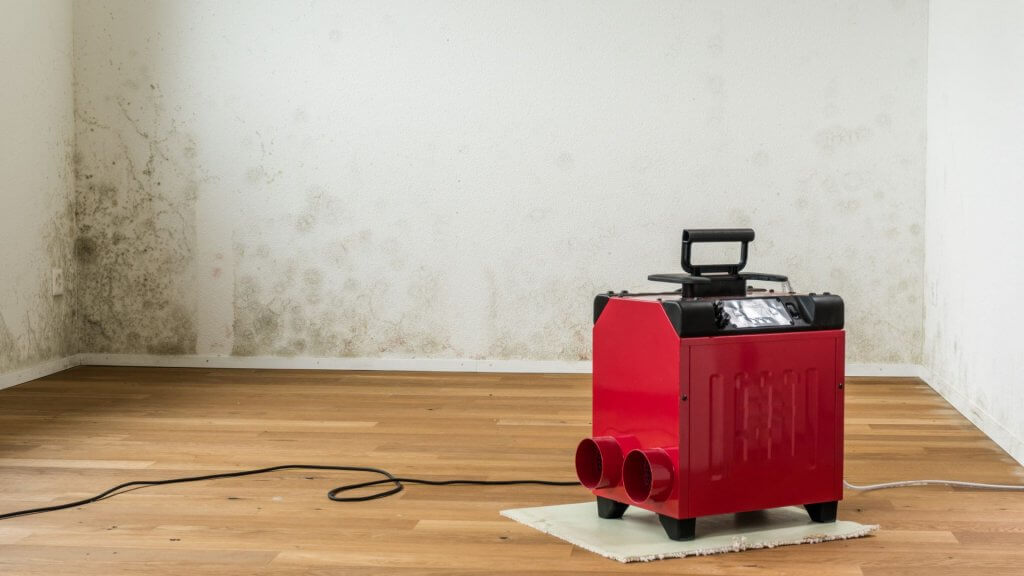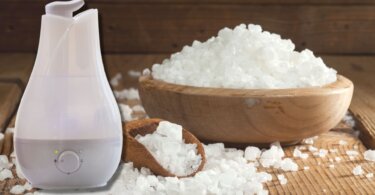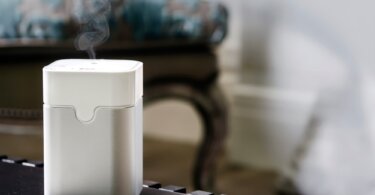In many states in the US, the humidity inside and outside the house is high for long periods of time. When there is too much humidity inside the house, germs and molds can start to develop. With the growth of pathogens, there is a need for ventilation. However, it is not possible for every household to have proper ventilation to clear out the excess moisture.
In such cases, buying a dehumidifier is a better option. But what will buying a dehumidifier entail? Importantly as well, what are its running costs? How much electricity does a dehumidifier use?
Compared to other electronic devices like refrigerators, washing machines, or air conditioners, a dehumidifier uses less energy. Usually, a portable dehumidifier uses 300W to 700W of energy. However, the amount of electricity used also depends on the dehumidifier’s type, size, and energy efficiency. For example, a 70-pint dehumidifier will consume more energy than a 30-pint model.
In this article, let’s look at how dehumidifiers work and how much electricity they use.

How Does an Electric Dehumidifier Work?
A dehumidifier works like a vacuum cleaner. It sucks out excess moisture from the room to regulate humidity. First, a coil or metal surface inside the dehumidifier is cooled down through a process similar to a refrigerator. Hot and humid air in the room passes through this cooling coil.
Since the coils of the dehumidifier are colder than the air around, they cause the moisture in the air to condensate into water droplets. This is because cold air can hold less moisture than warm air. The drops of water from the coil fall down in a bucket or drip pan, which you can empty periodically.
Usually, a dehumidifier works great between 70°F to 90°F. Anything below this temperature will make the condensed water freeze on the metal surface. And I can assure you from my own experience, you don’t want to fix a dehumidifier that’s freezing up 🙂
How Many Watts Does a Dehumidifier Use?
A dehumidifier uses less energy as compared to other electronic devices. A small 30-pint dehumidifier needs about 300 watts of energy, while a 70-pint needs 700 watts of energy.
Compared to a dehumidifier, a water heater uses 12,000W of energy, an air conditioner uses 3,300W of energy, and a washing machine uses 3,000W of energy.
An average size dehumidifier uses energy similar to a computer (550W). In dehumidifiers, most of the energy is consumed for compressing the refrigerant gas (to cool the coil). You can reduce the energy required by buying a dehumidifier that has a higher energy star rating.
How Much Does It Cost to Run a Dehumidifier?
Running the large-size dehumidifier for around 10 hours will cost you less than $1. However, this cost also depends on how energy efficient the device is.
You can easily calculate the energy efficiency of your dehumidifier. The energy efficiency is measured in liters per kilowatt-hour (L/kWh) and is expressed with the energy factor value (EEV). Once you know the capacity and how much power the dehumidifier uses, you can calculate its energy efficiency.
Conversely, if you know the energy efficiency, you can quickly figure out how many kWh of electricity you will use and therefore how much it will cost you.
For example, let’s imagine we have two 70-pint (about 40 liters) dehumidifiers working for 10 hours a day, with the only difference being that one has an EEV of 2.0, while the other has an EEV of 1.0.
The EEV 2.0 dehumidifier will use 40 / 2 * 10 = 200 kWh in one day, while the other one will use twice this much (400 kWh per day). The difference in your electric bill for running the device 365 days a year would be about $50.
Therefore, it is essential to look at the energy efficiency of dehumidifiers when looking for commercial use. It is ideal to buy a dehumidifier with an energy factor value of 1.5 or above to lower the electricity bill.
Also, you need to look at the following factors when calculating the electricity usage of dehumidifiers.
- A small-size dehumidifier will run at a low cost. For example, a 20-pint dehumidifier will consume less power than a large-size dehumidifier.
- To improve the running cost of a dehumidifier, it makes sense to buy an ideal size dehumidifier. If you buy a large humidifier, it will consume more energy than required. So you can first check the size of the dehumidifier and then choose which one is better for your space.
- A dehumidifier runs on different power settings (high, medium, and low). Different amounts of electricity will be spent in different settings.
- If suddenly there is an increase in your dehumidifier expense, your dehumidifier may have issues that may be affecting your electricity cost. So if you find any such problems, it is better to check your dehumidifier.
How to Make Your Dehumidifier More Efficient?
To make your dehumidifier more efficient, you need to consider some factors. It would be best if you placed the dehumidifier in the right place. The closer you place the machine to the largest concentration of humidity, the more efficient it will run. Basements, laundry rooms, or bathrooms are some of the best places to place a dehumidifier.
Also, you need to maintain your dehumidifier. A layer of dust in the device will affect its operational capacity. So, to keep it working efficiently, you need to clean your dehumidifier regularly. This includes cleaning the fan blade, coil, filter, and tank.
Can You Reduce Humidity at Home Without a Dehumidifier?
One of the best ways to use a dehumidifier is to reduce moisture content inside the house and prevent molds and mildew from developing. However, you cannot rely on just your dehumidifier to reduce the moisture of your house. There are some tricks to reduce humidity other than with a dehumidifier that does not require any investment.
- Calcium Chloride. Calcium chloride can reduce the moisture content. You can find it in any local hardware store. Just place a calcium chloride in a box in a humid room. The calcium chloride will work a bit more slowly than dehumidifiers but will be able to absorb all the moisture content from the surrounding area.
- Using ventilation fans in kitchens and bathrooms will clear out all the moisture content from the area.
- Repairing leaking taps will help save money on your water bills and reduce humidity.
- Indoor plants. Some houseplants are natural dehumidifiers. You can place some plants like a peace lily, palms, or Boston fern in your house to reduce humidity. These plants absorb moisture from the surrounding air through their leaves, thus reducing damp air.
Check out our selection of the Best Wall-Mounted Dehumidifiers
Frequently Asked Questions
Do Dehumidifiers Save Energy?
Yes, dehumidifiers can save energy and help lower electricity costs because a dehumidifier can reduce the usage of your air conditioning system. Dehumidifiers absorb excess moisture content from the surrounding air and can make the temperature feel a bit cooler. That’s why there is no reason to run the air conditioner as much.
Although both air conditioners and dehumidifiers operate on power, a dehumidifier uses a lot less energy. By combining your AC and a dehumidifier, you can save money on your electricity bill.
Should You Run a Dehumidifier All the Time?
No, you need not run a dehumidifier all the time.
You can run a dehumidifier when the humidity level is higher (above 50%). It is ideal for maintaining a 30% to 50% humidity level. However, you can run the dehumidifier as long as you need to. Just make sure to drain out the collected water regularly.
Related article: How Long Should a Dehumidifier Run Per Day
Wrapping Up
A dehumidifier helps reduce the excess moisture from the surroundings and consumes much less energy than many other electric devices. A dehumidifier uses 300W to 700W of energy depending on its size and model.
It is best to buy the most energy-efficient dehumidifier as it can lower the electricity costs to a large extent. Remember to maintain and clean the dehumidifier regularly.
I hope you find the article helpful and that it will help you to find an ideal, energy-efficient dehumidifier for your use.
Related articles:
Productive Uses for Your Dehumidifier Water
What Should I Set My Humidifier To?





Leave a Comment